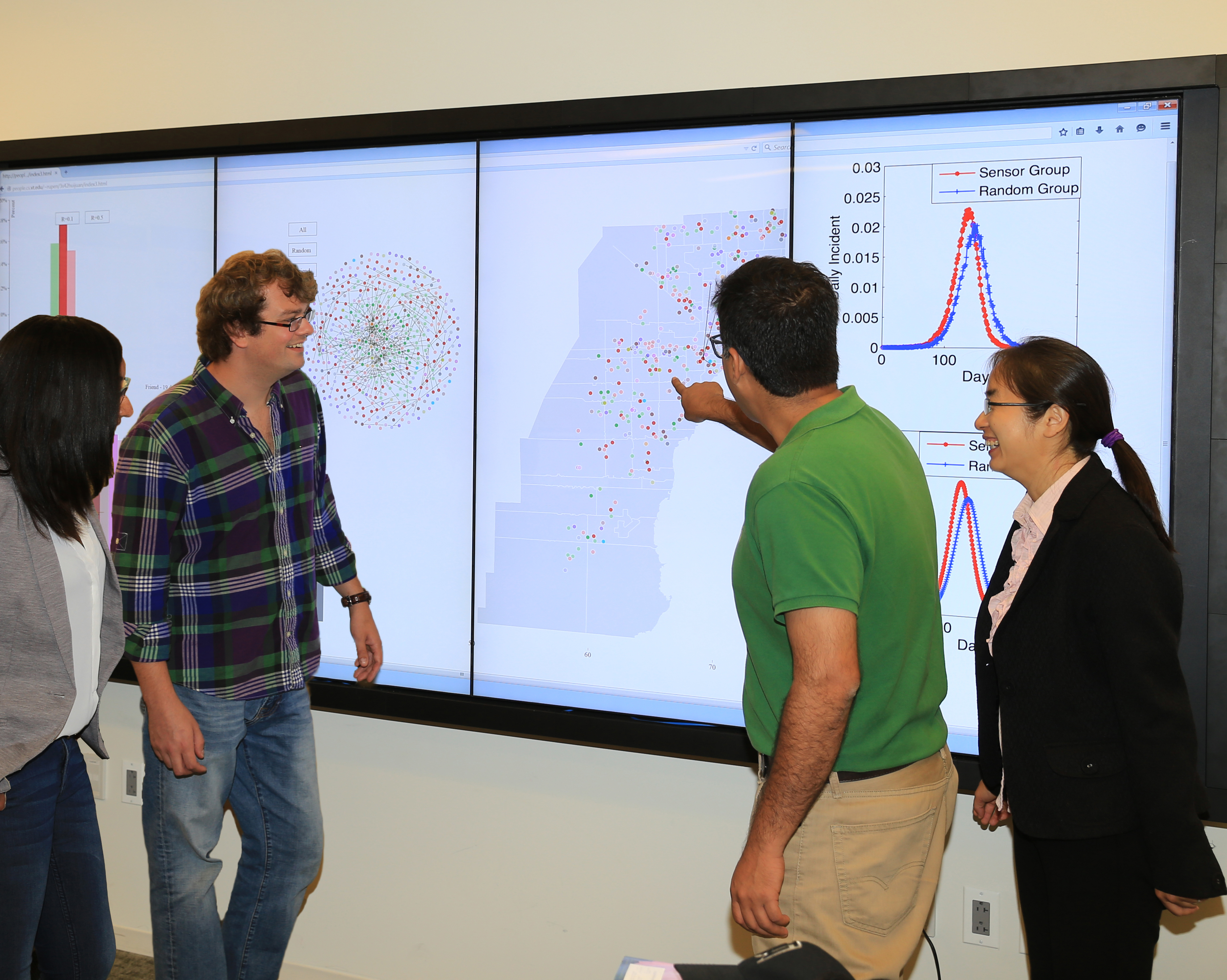Virginia Tech takes part in multi-university effort to apply big data solutions to regional challenges

An initiative supported by the National Science Foundation (NSF) will bring research universities across the southern U.S. into a partnership to develop a Big Data Regional Innovation Hub.
Virginia Tech’s Chang-Tien Lu, associate professor of computer science and associate director of the Discovery Analytics Center, is leading the university’s broad-based collaboration on the project, which will develop public-private partnerships to address big data challenges facing the region.
The Georgia Institute of Technology and the University of North Carolina’s Renaissance Computing Institute will co-direct the effort as part of the four Big Data Regional Innovation Hubs the NSF announced Nov. 2.
The South Hub will serve Alabama, Arkansas, Delaware, Florida, Georgia, Kentucky, Louisiana, Maryland, Mississippi, North Carolina, Oklahoma, South Carolina, Tennessee, Texas, Virginia, West Virginia, and the District of Columbia.
“The U.S. has the opportunity to lead the world in the application of big data to a variety of problems of critical importance,” said Jim Kurose, assistant director of computer and information science and engineering at the NSF. “The Big Data Hubs program represents a unique approach to improving the impact of data science by breaking through silos and establishing partnerships among like-minded stakeholders. In doing so, it enables leading scholars and institutions to develop collaborations that will accelerate progress in a wide range of scientific, educational, and social and economic domains with the potential for great societal benefit.”
Lu will work closely with research institutes, the Office of the Vice President for Information Technology, and others at Virginia Tech to propose new initiatives for the South Hub. “Our presence in the National Capital Region brings natural collaborations for big data applications in sustainability, health informatics, transportation, and defense/military applications,” he said. “This project also dovetails with the recently awarded NSF Urban Computing training grant to Virginia Tech to develop a Ph.D. program focused on big data and urbanization.”
“The hub brings together universities, businesses, and public sector agencies to share skills, technology, and ideas. In many cases, one group may have the techniques and technology for data mining, but not the data itself. Public agencies or businesses may have the data, but not the technology. All partners benefit by coming together to resolve challenges in a collective fashion. This is a very exciting time to be working to improve the techniques, technology, and application of big data.” Lu said.
Each of the hubs will engage businesses and research organizations in their region to develop common big data goals and will develop community-driven governance structures, as well as “spoke projects,” based on regional priorities and partnerships.
Initial spokes of the South Hub will focus on scientific and societal issues in five areas:
- Health care, including disparities in health, access to health care, and health outcomes; precision medicine, and health analytics
- Coastal hazards, including understanding and mitigating the consequences of natural and manmade disasters
- Industrial big data, including cyber-physical systems, the Internet of Things, and data-driven management of physical infrastructure; and power generation, transmission, and distribution from a variety of sources
- Materials and manufacturing, including data-driven contributions to the materials genome initiative and bridging the gap between materials science and manufacturing practice
- Habitat planning, including urban infrastructure, smart cities efforts, transportation, rural-urban infrastructure, and wildlife habitat and conservation
Initial NSF funding for the South Hub will be $1.25 million over three years. In addition, the NSF has funded hubs in the northeast, midwest, and western U.S., which are managed by universities in those regions.
Dedicated to its motto, Ut Prosim (That I May Serve), Virginia Tech takes a hands-on, engaging approach to education, preparing scholars to be leaders in their fields and communities. As the commonwealth’s most comprehensive university and its leading research institution, Virginia Tech offers 240 undergraduate and graduate degree programs to more than 31,000 students and manages a research portfolio of $513 million. The university fulfills its land-grant mission of transforming knowledge to practice through technological leadership and by fueling economic growth and job creation locally, regionally, and across Virginia.




